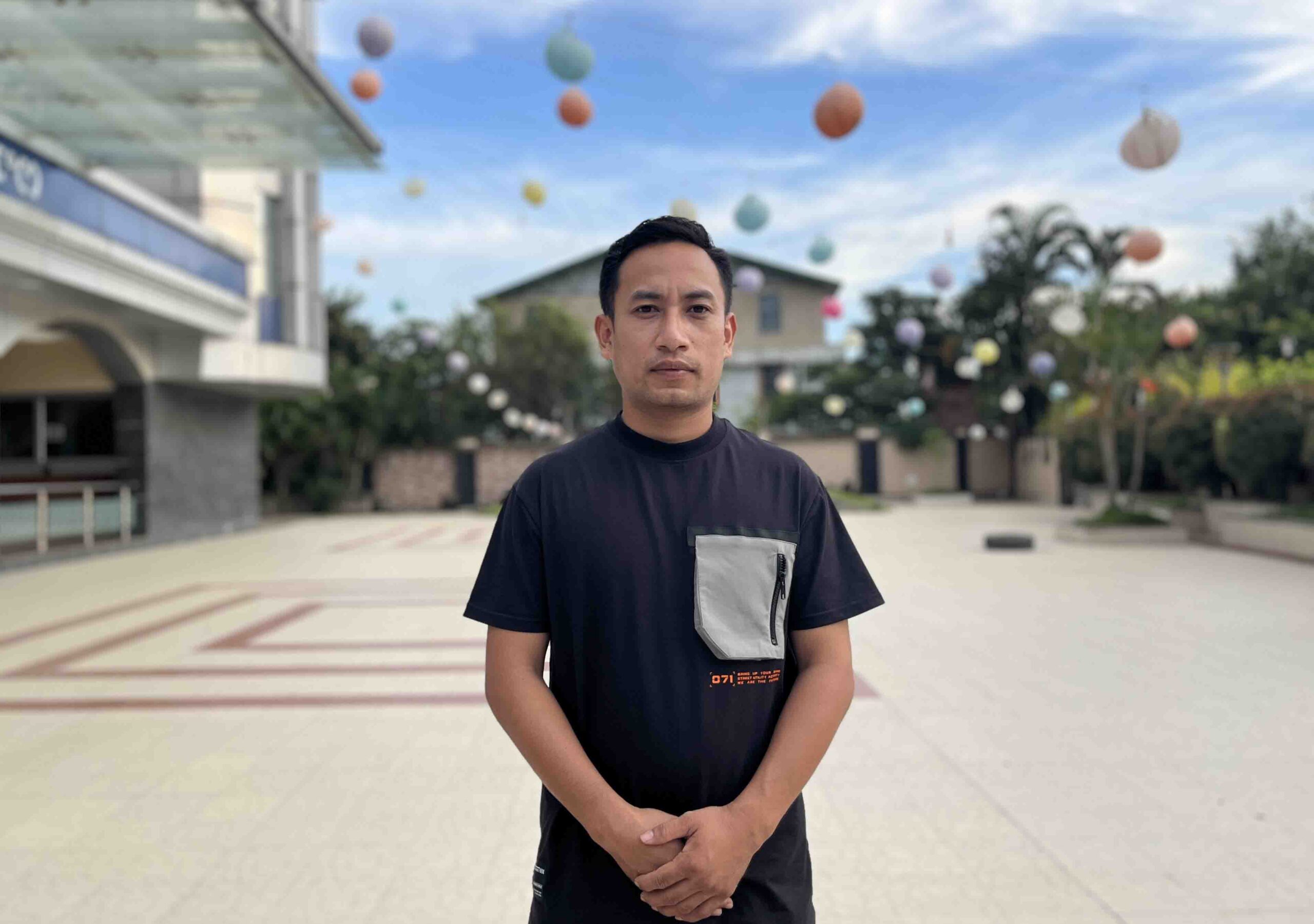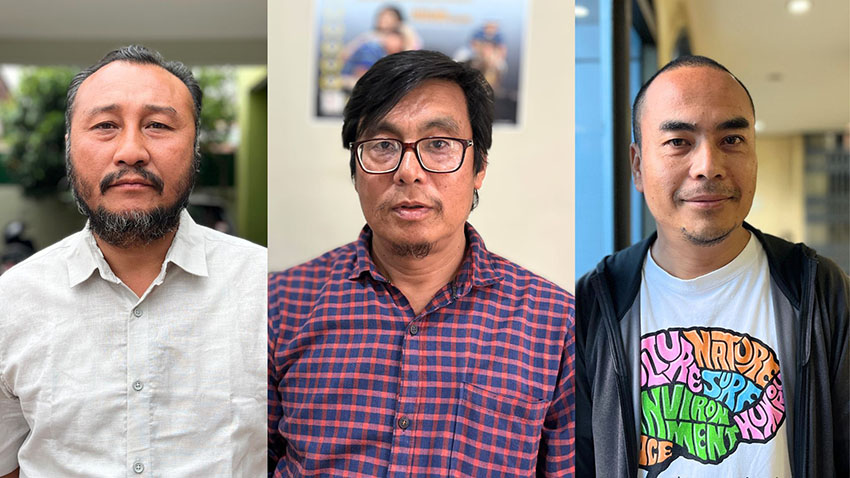Despite enduring myriad adversities unceasingly, the state of Manipur has achieved remarkable acclaim on both national and international platforms across various domains, including culture and sports. Who could have foreseen that Ishanou, a 1990 cinematic oeuvre by Aribam Syam Sharma, would be re-elevated to prominence at the 76th Cannes Film Festival in 2023, particularly in the Cannes Classics section, despite its initial presentation in the Un Certain Regard section at the 1991 festival? The state’s foray into the realm of documentary filmmaking has also garnered considerable accolades, both domestically and abroad.
Manipur, a region with a profound cultural and traditional heritage, has seen its documentary films vividly encapsulate and celebrate this rich legacy. Under the aegis of renowned filmmakers and the Manipur State Film Development Society, numerous aspiring filmmakers, particularly the youth, have been nurtured through workshops and are now showcasing their works on a global stage. Despite the state’s ongoing challenges and uncertainties, the future of its cinematic industry appears promising.
Among the emerging talents is Khaba Maimom, an extreme sports athlete hailing from Bashikhong Maimom Leikai. His inaugural documentary, Kwatha Pham Kaaba (translated as The Great Kwatha Accession), made its debut on July 27. This premiere, which featured a solitary screening, was followed by an additional two showings on July 28, signaling a burgeoning interest in his work and hinting at a bright horizon for the state’s cinematic contributions.
Notwithstanding the generally niche appeal of documentary films, which often attract a select audience rather than widespread mass viewership, Khaba Maimom’s Kwatha Pham Kaaba has managed to captivate a significant number of spectators. Shown commercially at the Auditorium of the Manipur State Film Development Society (MSFDC), the screening drew an almost full house—a noteworthy achievement, given that documentary films in Manipur have seldom enjoyed such robust attendance. This landmark event is further underscored by the fact that it marked the first commercial screening of a documentary in the state’s history to achieve such full-house attendance. In response to public demand, the film is slated for a repeat viewing with two additional showings scheduled for September 1, 2024.
Adding to the film’s appeal is the song “Sagatlo Jagoi,” performed during the Kwatha Pham Kaaba event and featured within the documentary itself. Rooted deeply in the cultural heritage of Kwatha village, this evocative song has resonated strongly with netizens and contributed significantly to the film’s popularity. Its integration into the film has undoubtedly enhanced its allure and attracted a wider audience.
To gain further insights into his creative journey and the making of Kwatha Pham Kaaba, the Imphal Review of Arts and Politics (IRAP) engaged in a dialogue with Khaba Maimom. This interview promises to shed light on the director’s vision and the intricate process behind this landmark film, offering a deeper understanding of his cinematic aspirations and the cultural significance embedded in his work.
Excerpts from the Interview:
IRAP: What was the inspiration behind your decision to create this film, and what circumstances led you to embark on this project?
Khaba: The inspiration for this film was sparked during a visit to Kwatha, where I was originally working on an advertisement for Khatha Adventure Valley, a theme park nestled in this picturesque region. What initially struck me was the stunning landscape—a serene and remote area that I never imagined would harbor a Meitei village. The village’s isolation, combined with its unique cultural setting, immediately intrigued me. As I spent more time there, I became fascinated by the lives of the people in Kwatha. Their stories, traditions, and way of life were so different from what I knew, and this deepened my interest in the village. In particular, I learned about an important cultural event called Kwatha Pham Kaaba, a celebration rich in history and meaning. My curiosity led me to meet Ema Takhellambam Apabi, an elderly woman who became a central figure in my experience. She shared the story of Kwatha Pham Kaaba in vivid detail and sang the “Sagatlo Jagoi” song—a traditional melody that has since become beloved by many.
Her storytelling had a profound effect on me. It wasn’t just the content of her stories, but the way they were told—the depth of emotion, the connection to the land, and the cultural heritage embedded within them. I left Kwatha feeling that this was more than just an experience—it was a story that needed to be preserved and shared. Upon returning to Imphal, I couldn’t shake the feeling that we had stumbled upon something truly special. I discussed it with my team, and we unanimously agreed that this story needed to be documented. Even if it was just for archival purposes, we felt a responsibility to capture the essence of this event and the people who keep it alive. And so, we returned to Kwatha with a renewed purpose, and this film was born out of that commitment to preserving and honoring the unique culture and traditions of the village.
IRAP: How long did it take you to make the film, and what was the research process like? What were your experiences in gathering the necessary information?
Khaba: We didn’t have much time for in-depth research, and the subject matter was unfamiliar to all of us involved in the project. As we prepared to film, I constantly asked questions about the Pham Kaaba festival, jotting down every piece of information I could gather on my phone. Ema Apabi’s stories were particularly valuable, and I recorded everything she shared as soon as I returned to Imphal. Initially, I had a clear vision in my mind of how I wanted to shoot the film, with specific shots and sequences planned out. But once I arrived at the festival and the event began, I realized that much of what I had planned wasn’t going to work. The reality of the festival, with its spontaneous energy and dynamic flow, made my preconceived ideas irrelevant. So, we adapted on the spot, focusing on capturing the event as it unfolded naturally.
The festival itself lasted two days, from May 3rd to May 4th, 2022, but our filming extended over four days, from May 2nd to May 5th. We didn’t just focus on the festival; we also explored Kwatha extensively, capturing footage of the village, its people, and the surrounding environment. After the festival, we took the time to meet with many of the village elders, gathering their opinions and stories, which added depth and authenticity to the film. In the end, the film came together from all the footage we captured—both planned and unplanned. It was a challenging process, but it was also incredibly rewarding to see how the film evolved from the raw, unfiltered experiences we had during those days in Kwatha.
IRAP: Your film, especially its trailer, has brought a lot of attention to the song “Sagatlo Jagoi.” How did you go about recording the song?
Khaba: The recording of “Sagatlo Jagoi” was very organic—we captured it live as it was being performed during the festival, rather than in a studio setting. Our sound engineer was on site, recording the song as it unfolded in real time. The song is integral to the festival, sung continuously from start to finish, embodying themes of unity, joy, and togetherness.
Because the song was sung throughout the festival, we had multiple opportunities to record it. We carefully processed these recordings afterward, cleaning up background noise and enhancing the audio where necessary, while still preserving the raw, authentic feel of the live performance. The result is something that has clearly resonated with people, as the song has become quite popular, with listeners connecting to its powerful message and the emotions it conveys.
IRAP: Given the ongoing unrest in the state, which has persisted for about 16 months without resolution, how has the violence impacted the people featured in your film?
Khaba: The pervasive violence has cast a shadow over the entire state, affecting everyone, whether directly or indirectly. The situation in Kwatha is particularly dire, with reports of Meitei homes being set ablaze in Kwatha Khunou. The ethnic conflict between the communities has wreaked havoc on their lives, severing the once-thriving connections they had with neighboring areas like Moreh, where they conducted much of their trade and business. Now, with transportation routes severed and movement between regions rendered nearly impossible, their ability to sustain their livelihoods has been severely compromised. The struggle to obtain basic necessities, such as rice and salt, has become a daily battle for survival. The isolation imposed by the unrest has left them in a state of profound hardship, as they grapple with the scarcity of essential resources. In my conversations with people there, I’ve sensed a deepening despair, as the very fabric of their existence has been unraveled by this relentless conflict.
IRAP: Do you have a formal background in filmmaking, and have you begun working on new projects since your initial success in the field?
Khaba: I haven’t received any formal training in filmmaking. However, from a young age, I was drawn to visual storytelling and had a passion for capturing moments. I naturally gravitated toward creating videos, always thinking creatively about different shots and styles of storytelling. My journey began with a focus on extreme sports, an area that had very little representation in video form at the time. I bought a GoPro and started filming my activities as a downhill skateboarder. My first significant project was a video titled “Manipur is Awesome,” which I uploaded to my YouTube channel, Hangkok Manipur. This platform allowed me to explore and showcase my creative ideas, and soon I expanded into making videos about talented individuals in my community. One of the highlights was creating a video for the theme song of Manipur’s Orange Festival.
As my work gained visibility on social media, a producer approached me to feature in a Mountain Dew advertisement, where I was cast as a skateboarder. This opportunity marked a turning point in my journey, leading me to rebrand Hangkok Manipur as Hangkok Films. My debut documentary, “Kwatha Pham Kaaba,” was a significant milestone for me. Currently, I’m working on a short film, continuing to evolve and expand my filmmaking journey. Each project is a new opportunity to explore and refine my craft, and I’m excited to see where this path will lead me.
IRAP: What were some of the most challenging situations you faced while making the film?
Khaba: The entire process of making the film was fraught with challenges, largely because I had no prior knowledge of the rituals and traditions we were documenting. I entered the project with little understanding of what to expect, which made it difficult to plan shots or anticipate the flow of events. For instance, I was informed that one of the rituals would involve “Pakhang Phan Kaaba,” where young women would visit each household. However, we had no concrete idea of what this entailed, nor did we know how to capture it effectively on film. We had a vague outline of the events, but we were in the dark about the specific dialogues, actions, and sequences that would unfold as part of the ritual. This lack of clarity made it challenging to structure the film. Yet, this unpredictability also became a source of fascination. We were essentially filming in real-time as the events unfolded before us, in their most authentic and unfiltered form. The rawness of this experience was both daunting and exhilarating.
The physical demands were also significant. We often had to walk long distances, following the participants as they moved from one location to another, all while trying to capture the essence of the ritual. Despite these challenges, the warmth and hospitality of the people of Kwatha made the experience incredibly rewarding. They welcomed us as if we were part of their community, treating us with such kindness that it felt as though Kwatha was our own home, and the residents were our family. This sense of camaraderie between us filmmakers and the villagers is something that I believe is palpably reflected in the film. The bond we formed with the community was not just a backdrop to the documentary—it became an integral part of the story we were telling.
IRAP: What do you believe the people of Manipur can learn from your film, Kwatha Pham Kaaba?
Khaba: I believe that the people of Manipur can learn the profound importance of love and mutual respect from the community in Kwatha. One of the key lessons is the value of listening—truly listening to one another with the intent to understand. In Kwatha, perhaps due to their small population, the villagers have cultivated a culture of deep empathy and communication. They are quick to forgive and forget, prioritizing harmony and unity over discord.
The villagers work together with a strong sense of collective responsibility. They support one another in efforts that benefit the entire community. When mistakes are made, the village addresses them through thoughtful discussion, ensuring that everyone is heard and that a consensus is reached. This even extends to holding individuals accountable, with the community collectively deciding on consequences for actions that go against their shared values. What struck me most is their commitment to dialogue. They constantly engage in conversations to stay informed and to ensure that decisions are made with the well-being of everyone in mind. I think this spirit of unity, understanding, and cooperation is something that all of us in Manipur could learn from and aspire to.












